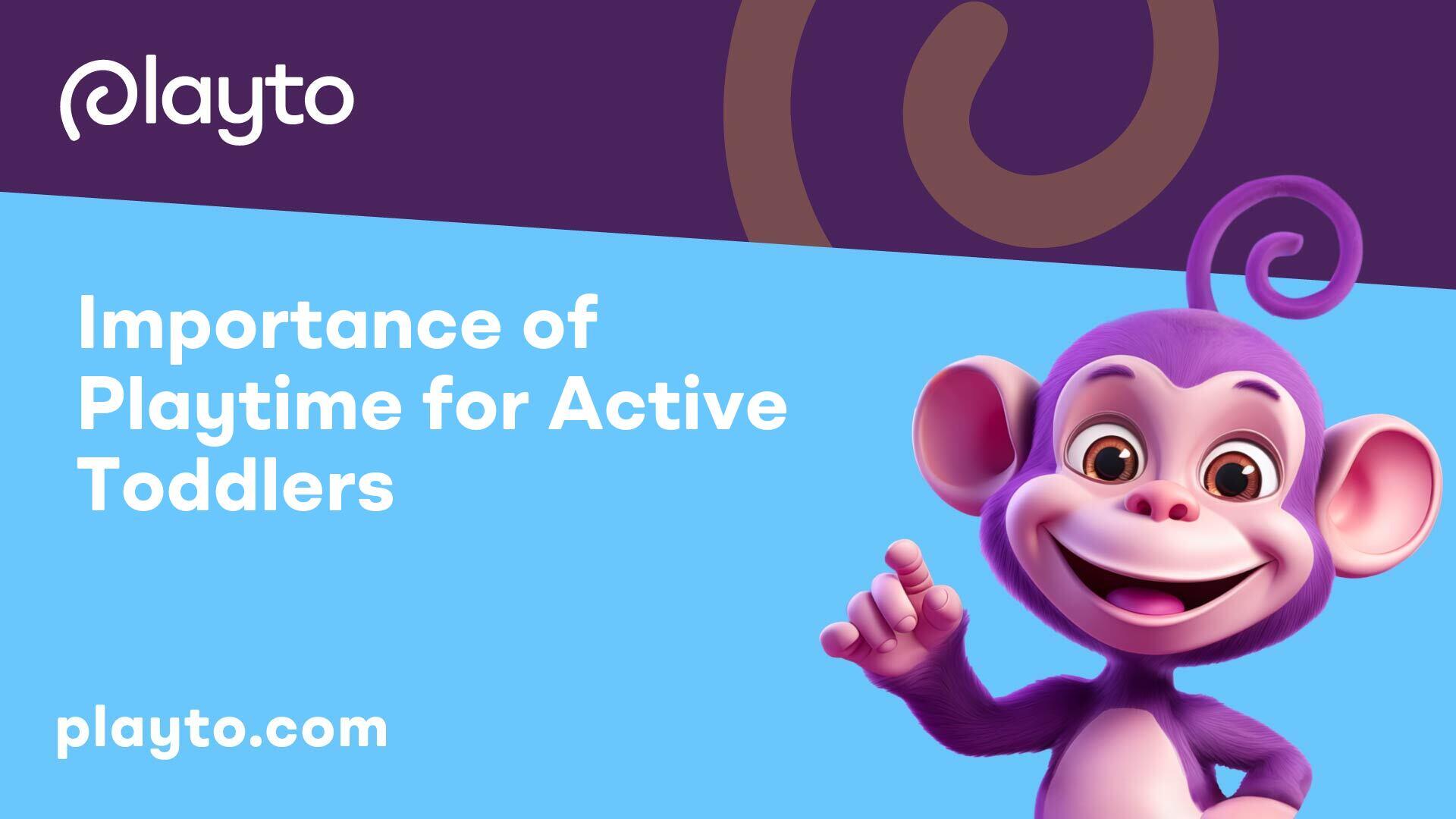
Importance of Playtime for Active Toddlers
Engaging in daycare playtime for active toddlers is vital for the overall development and well-being of young children. The benefits of physical activity, be it through indoor or outdoor play, play a crucial role in fostering healthy growth and cognitive development.
Benefits of Physical Activity
Physical activity is essential for toddlers as it promotes the development of motor skills, coordination, and strength. Studies suggest that outdoor free-play is particularly beneficial for active toddlers, as it provides them with the opportunity to engage in spontaneous physical activities. Most toddlers need more than an hour of indoor free-play to reach the recommended level of physical activity, emphasizing the need for extended play periods for active toddlers [1].
Regular physical activity not only contributes to physical health but also plays a significant role in improving cognitive function and emotional well-being. It aids in stress relief, increases happiness, fosters creativity, and cultivates skills like collaboration and empathy. Therefore, incorporating structured playtime into a toddler's routine is crucial for their overall development and happiness.
Indoor vs. Outdoor Play
While indoor play offers opportunities for creativity and imaginative play, outdoor play is particularly beneficial for active toddlers. None of the children in a study sample were able to meet the recommended 15 minutes of physical activity after just 15 minutes of outdoor play, highlighting the importance of extended outdoor play periods for toddlers to meet health guidelines.
In outdoor environments, toddlers have more space to move around, explore their surroundings, and engage in physical activities like running, jumping, and climbing. Outdoor play helps toddlers develop gross motor skills, balance, and coordination. It also exposes them to different sensory experiences, such as feeling the texture of grass or hearing the sounds of nature.
By balancing indoor and outdoor playtime, childcare providers can create a well-rounded play environment that nurtures both the physical and cognitive development of active toddlers. Offering a mix of indoor and outdoor activities ensures that toddlers have the opportunity to grow, learn, and thrive in a supportive and engaging daycare setting.

Active Supervision in Daycare Settings
Ensuring daycare playtime for active toddlers involves active supervision to maintain a safe and engaging environment. This section delves into the critical aspects of active supervision, including adult-child ratios and supervisory guidelines.
Adult-Child Ratios
Recommended adult-child ratios for daycare settings are crucial to safeguard the well-being of toddlers. Typically, the ratios are established to ensure that each child receives adequate attention and care. Key guidelines include:
Age GroupAdult-Child RatioMaximum Group SizeInfants up to 15 months1:48Children aged 21 to 36 months1:612
These guidelines, as provided by national accrediting organizations like NAEYC, play a fundamental role in upholding the safety standards within daycare settings.
Supervisory Guidelines
Active supervision in daycare settings is essential for the safety and well-being of active toddlers, as outlined by ECLKC. It involves proactive monitoring of children's activities, anticipating their behaviors, and engaging with them appropriately. Key supervisory guidelines include:
Effective active supervision not only enhances safety but also fosters a stimulating environment for toddlers to explore, learn, and interact with their peers. By adhering to recommended adult-child ratios and implementing supervisory guidelines, daycare providers can create a secure and nurturing space for toddlers to thrive during playtime activities.

Developing Motor Skills Through Play
Engaging toddlers in play that focuses on developing motor skills is essential for their physical development. Here we explore playtime recommendations and equipment-free activities that can aid in enhancing toddlers' gross motor skills.
Playtime Recommendations
For toddlers between the ages of 1 and 3, physical activity plays a crucial role in their overall development. Encouraging activities that engage their large muscle groups in arms and legs helps in refining their gross motor skills [3]. Here are some playtime recommendations to boost motor skill development:
Incorporating these playtime activities into the daycare routine can provide toddlers with valuable opportunities to enhance their motor skills in a fun and engaging way.
Equipment-Free Activities
Equipment-free activities are an excellent way to promote physical development in toddlers while fostering creativity and social interaction. One popular equipment-free activity that benefits toddlers' physical and social skills is "Row, Row, Row Your Boat" [3].
This simple yet effective activity involves toddlers sitting in pairs facing each other, holding hands, and moving their arms in rowing motions while singing the familiar tune. Not only does this activity help in physical coordination and muscle development, but it also encourages socialization and cooperation among toddlers.
Integrating equipment-free activities like these into the daycare schedule can be a valuable addition to promote motor skill development in toddlers while fostering essential social and cognitive skills. Incorporating a balance between structured playtime and free play can help toddlers thrive and grow both physically and developmentally.
Optimizing Daycare Outdoor Play
Enhancing the outdoor play experience for toddlers in daycare settings is vital for their overall development and well-being. When it comes to daycare playtime for active toddlers, optimizing outdoor play involves providing engaging playgrounds and equipment that prioritize safety and development.
Playgrounds and Equipment
Daycare playgrounds play a crucial role in promoting physical activity and fostering the cognitive and social development of toddlers. According to WillyGoat, outdoor play on well-designed playgrounds offers numerous benefits, including exercise, bone strengthening, and obesity prevention for growing children.
One manufacturer that specializes in early childhood playground equipment is Little Tikes Commercial, providing innovative and safety-focused solutions. Their Tot Builders™ Toddler Play Equipment is designed to meet the needs of young children, featuring playhouses rich in colors, numbers, sensory elements, and creativity centers. These elements not only stimulate imaginative play but also enhance parent-child interaction during playtime.
Safety and Development
In daycare outdoor play areas, safety is paramount to ensure that toddlers can play and explore freely without risks. Proper supervision and age-appropriate equipment are essential components in creating a safe play environment for active toddlers.
Daycare playground equipment not only promotes physical activity but also supports cognitive development and imaginative play. These play areas offer opportunities for toddlers to interact, develop social skills, and learn important lessons such as cooperation and sharing.
With a focus on safety and development, daycare outdoor play becomes a valuable part of a toddler’s daily routine, fostering growth in physical, social, and cognitive aspects. By ensuring that playgrounds are equipped with stimulating and safe elements, daycare providers can create a nurturing environment where toddlers can explore, learn, and thrive.
Toddler Playtime at Daycare
Ensuring a stimulating play environment for toddlers in daycare is vital for their development and well-being. Preschool outdoor solutions play a significant role in providing a safe and engaging space for children to explore and actively participate in physical activities.
Preschool Outdoor Solutions
Outdoor playtime is essential for toddlers as it provides them with the opportunity to engage in physical exercise, strengthen their bones, maintain good health, and prevent obesity. Licensed daycare centers often mandate a minimum amount of daily outdoor time to ensure children receive the physical activity they need for healthy growth and development [4].
When it comes to outdoor play solutions, Little Tikes Commercial offers early childhood playground equipment designed specifically for toddlers. Their Tot Builders™ Toddler Play Equipment features preschool-sized playhouses with vibrant colors, numbers, creative centers, sensory walls, and interactive elements. These structures cater to the needs and desires of young children, fostering an environment that encourages imagination, cognitive development, and physical engagement.
Inclusive Design Benefits
Incorporating inclusive design principles into preschool outdoor solutions offers various benefits for children in daycare. Playgrounds that are thoughtfully designed to accommodate children of all abilities promote social interaction, cooperation, and the development of essential social skills. Children learn to interact with one another, take turns, and collaborate in a natural setting.
Furthermore, outdoor play equipment stimulates children's imagination, creative thinking, and brain development by offering physical and sensory play experiences. The interactive elements provided by daycare playground equipment contribute to the holistic development of children, fostering sensory exploration and cognitive growth.
By prioritizing inclusive design in preschool outdoor solutions, daycare centers create an environment where all children can engage in play, learn from one another, and develop critical skills that lay the foundation for future growth and success. These outdoor play options not only enhance physical health but also contribute significantly to the social, emotional, and cognitive development of toddlers in daycare.
The Impact of Play on Child Development
Engaging in play has a profound impact on the cognitive and emotional well-being of children. Playtime is not just about fun; it plays a crucial role in shaping various aspects of a child's development, particularly their cognitive abilities and emotional health.
Cognitive and Emotional Well-Being
Play nurtures relationships with oneself and others, relieves stress, increases happiness, builds feelings of empathy, creativity, collaboration, and supports the growth of sturdiness and grit. Deprivation of play opportunities can significantly impair a child's development.
During play, children have the opportunity to explore their surroundings, experiment with different scenarios, and engage in imaginative activities. These experiences stimulate cognitive growth by promoting problem-solving skills, creativity, and critical thinking. Furthermore, play fosters social interactions, helping children develop essential social skills such as communication, cooperation, and conflict resolution.
Emotionally, play provides a safe outlet for children to express their feelings, cope with stress, and regulate their emotions. Through play, children learn to navigate various emotions, understand social cues, and develop resilience in the face of challenges.
Importance of Free Play Time
Play is a central component in developmentally appropriate practice, and the United Nations High Commission on Human Rights declared it a fundamental right of every child, emphasizing its importance in optimal growth in childhood.
Free playtime, characterized by unstructured and child-directed activities, is especially valuable for young children. Children need open-ended, unscheduled times to explore and discover, as learning happens most effectively with open-ended materials that nurture creativity. Hands-on materials like blocks, sand, water, dirt, child-sized wheelbarrows, small shovels, ramps, and balls are recommended [2].
During free play, children are given the freedom to follow their interests, make choices, and direct their own activities. This type of play empowers children to take initiative, exercise independence, and develop a sense of agency over their environment. It allows them to explore their imagination, test boundaries, and engage in self-discovery.
A child's playtime can be enhanced by the presence of a caring adult, who should set aside quality playtime to do exactly what the child wants to do, enabling meaningful play to happen. Adults can follow a child's lead or offer gentle guidance, but play is at its richest when children are in charge.
In conclusion, both structured and unstructured playtime are essential for children's cognitive and emotional development. By providing ample opportunities for play, caregivers and educators can support children in thriving academically, socially, and emotionally.
References
[2]:
[3]:
[4]:
